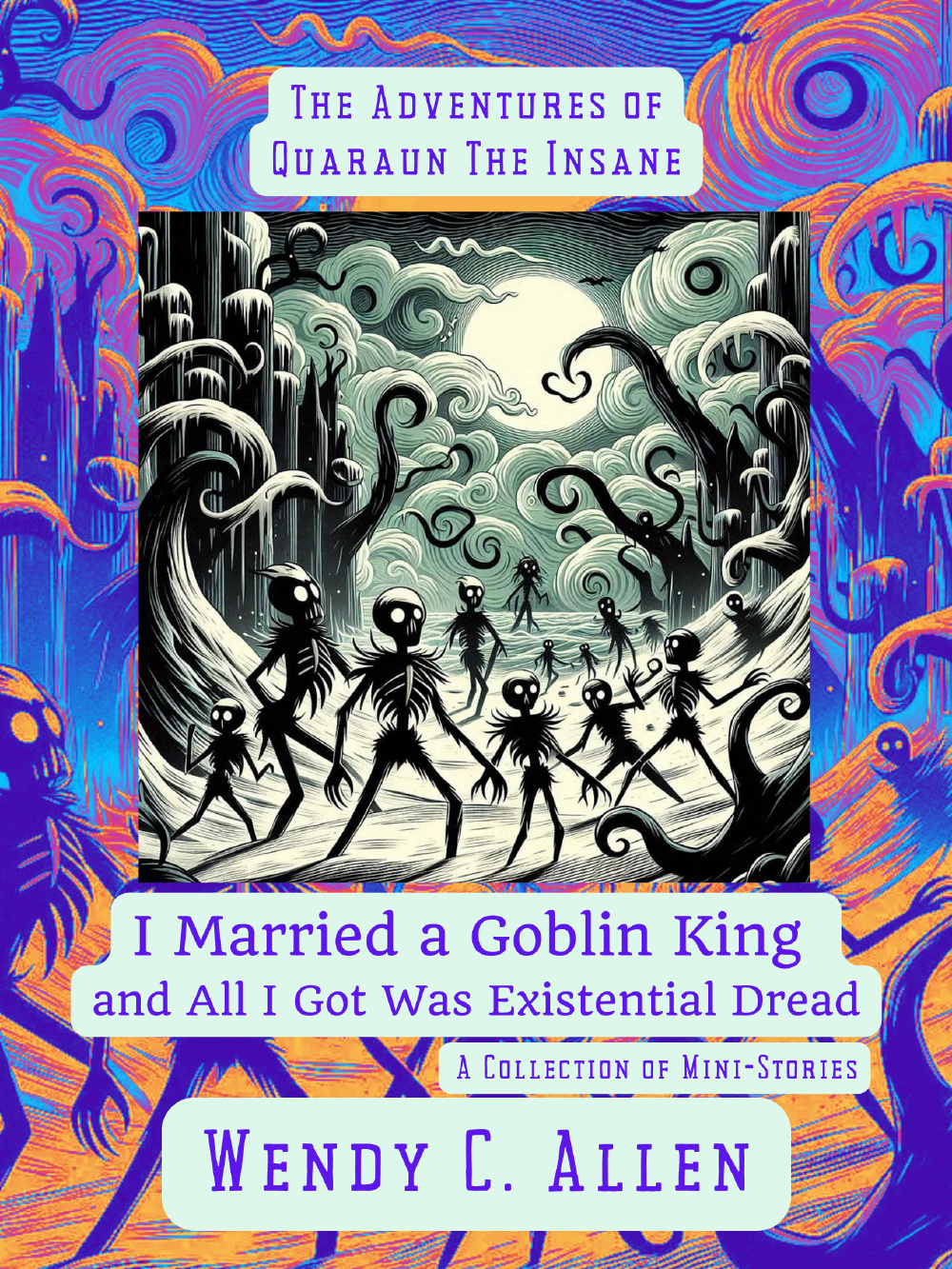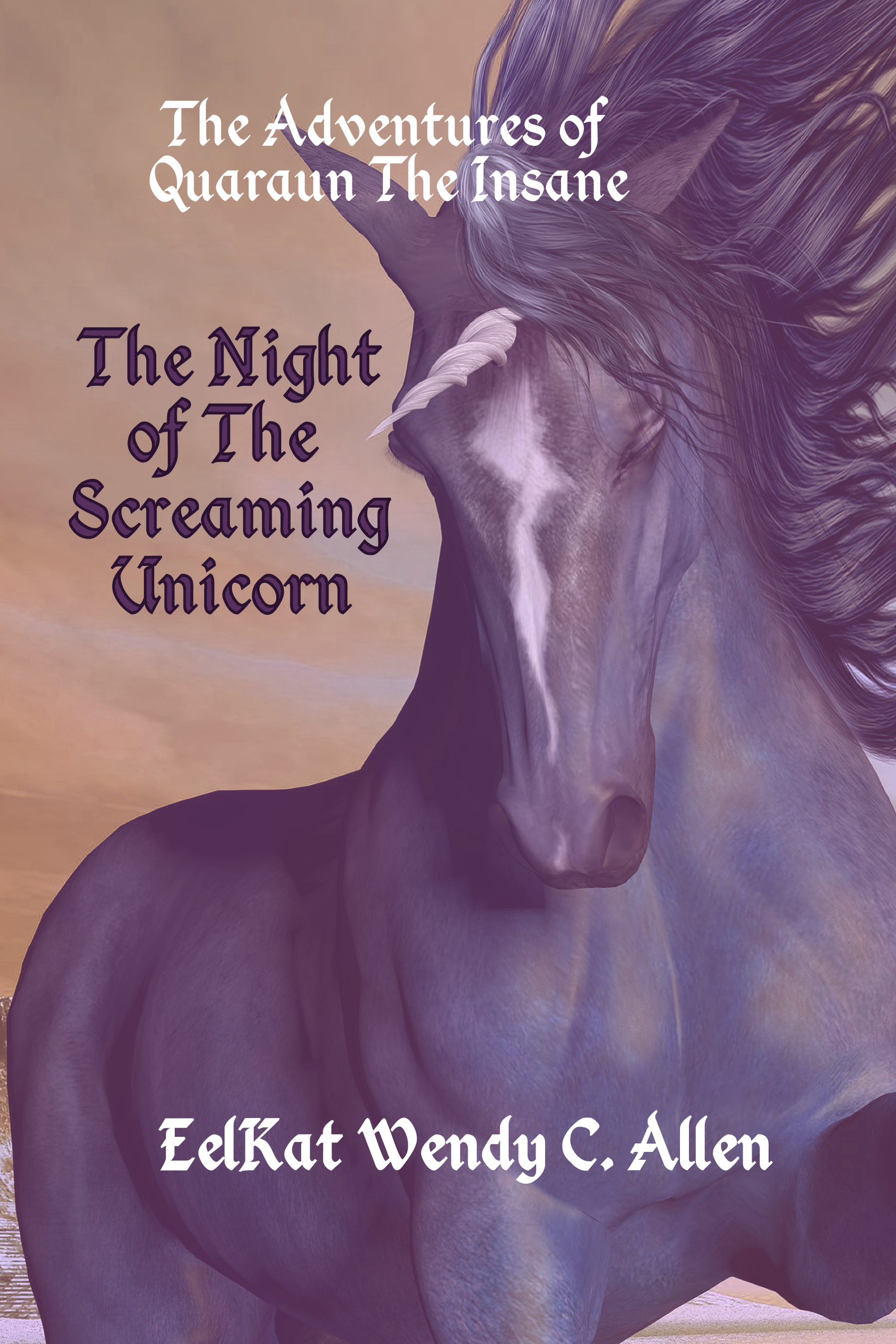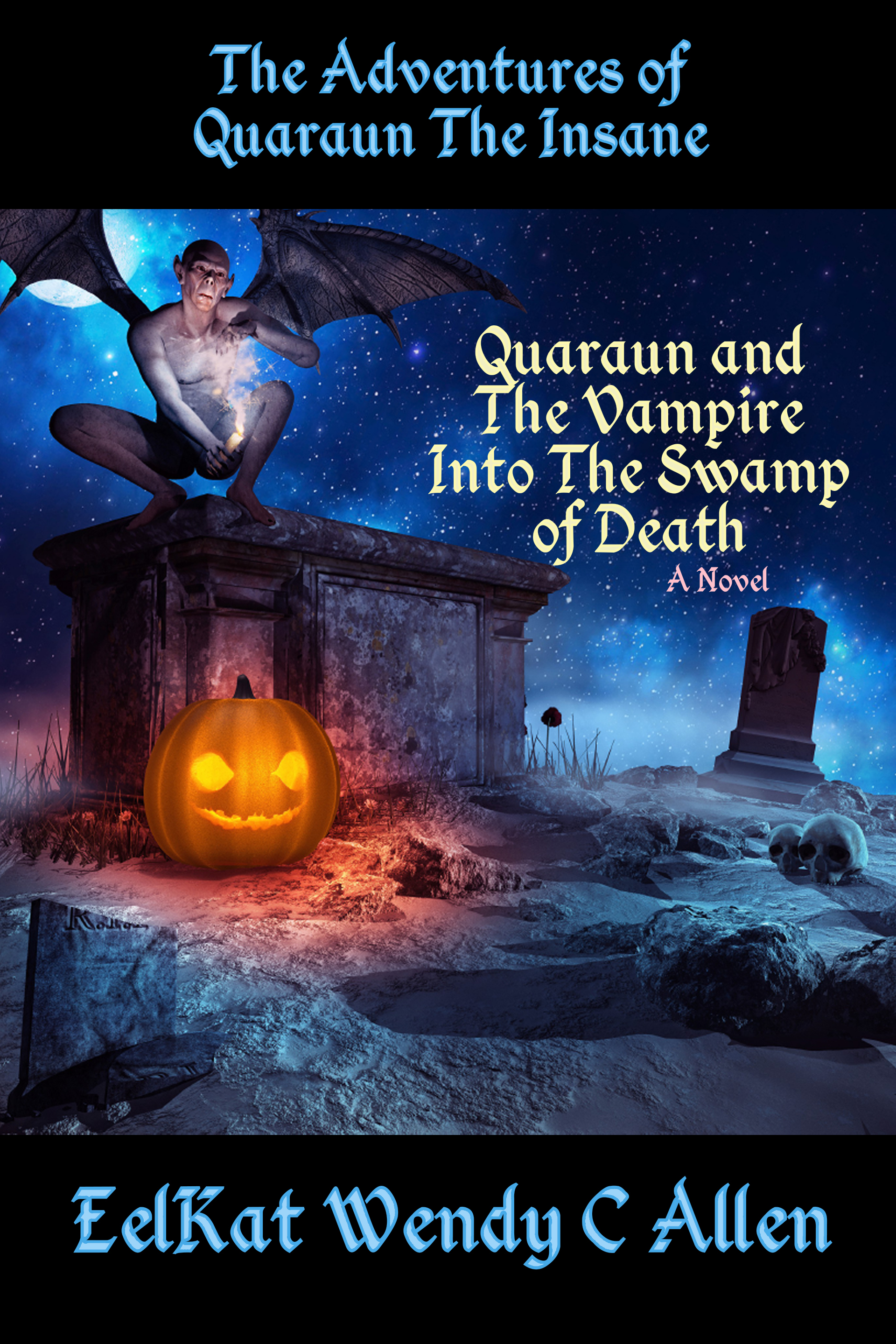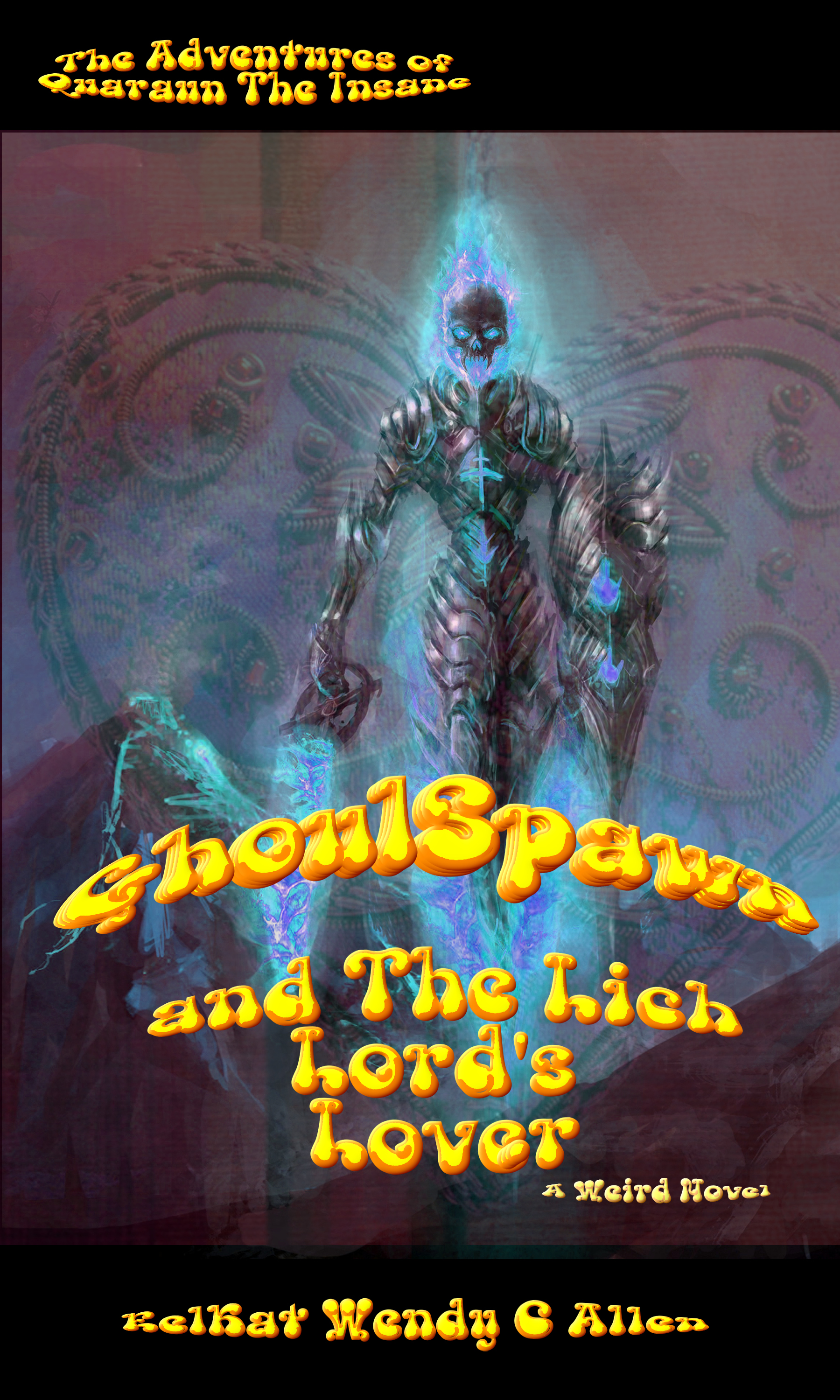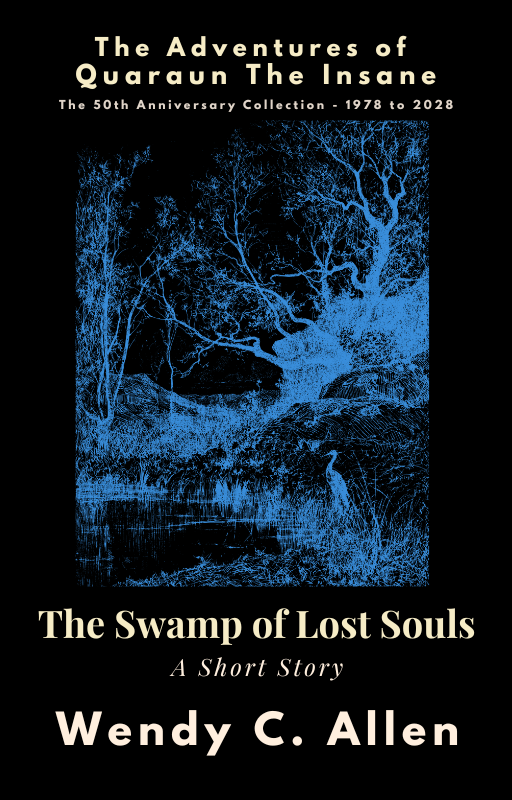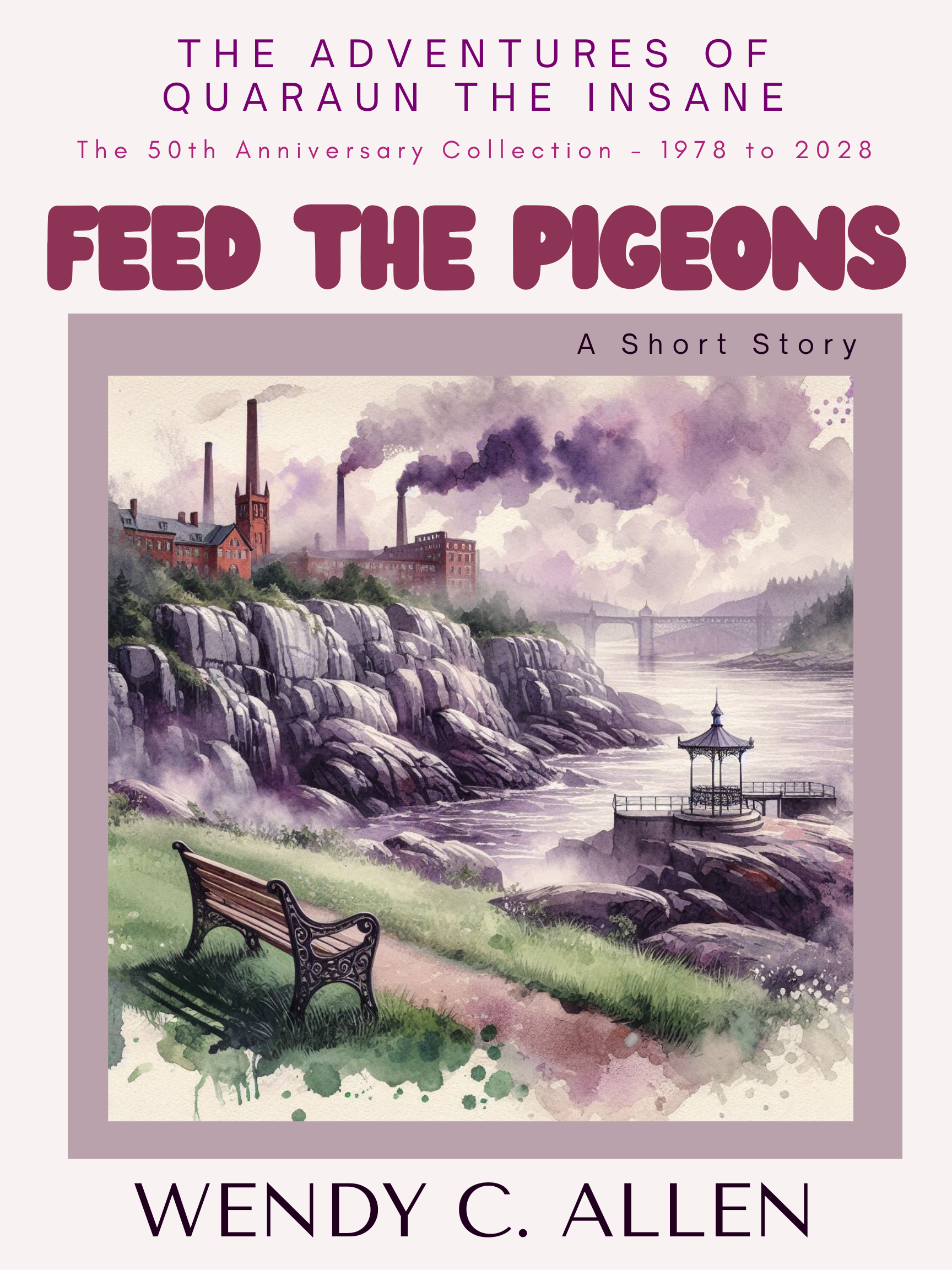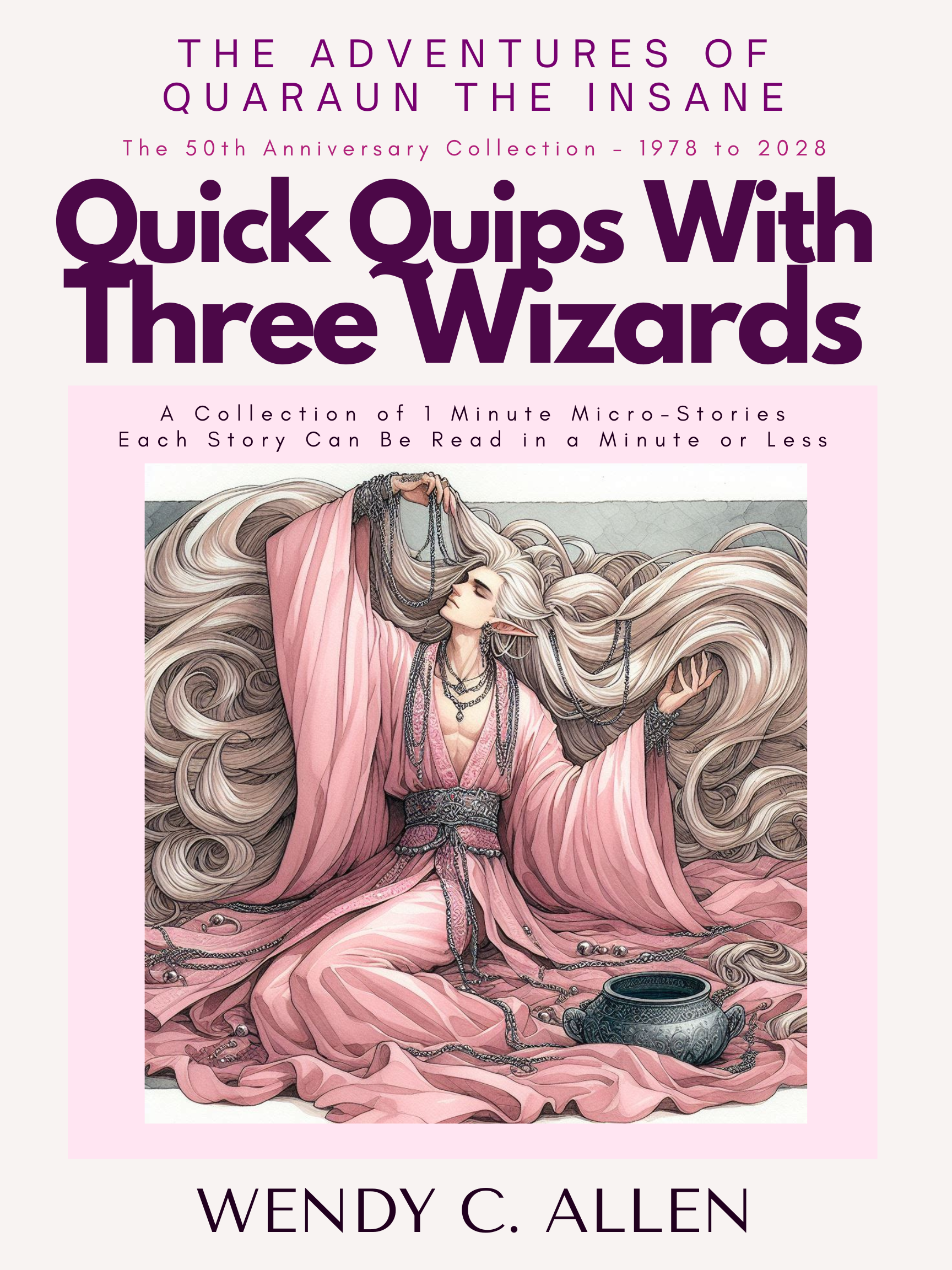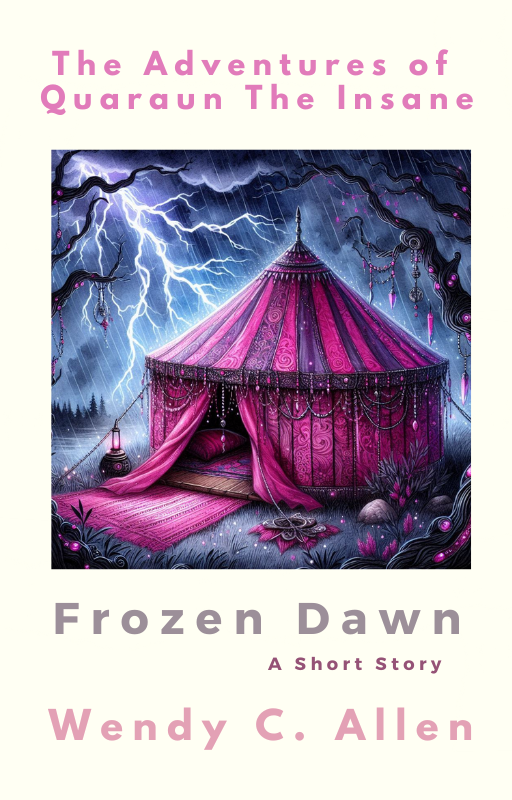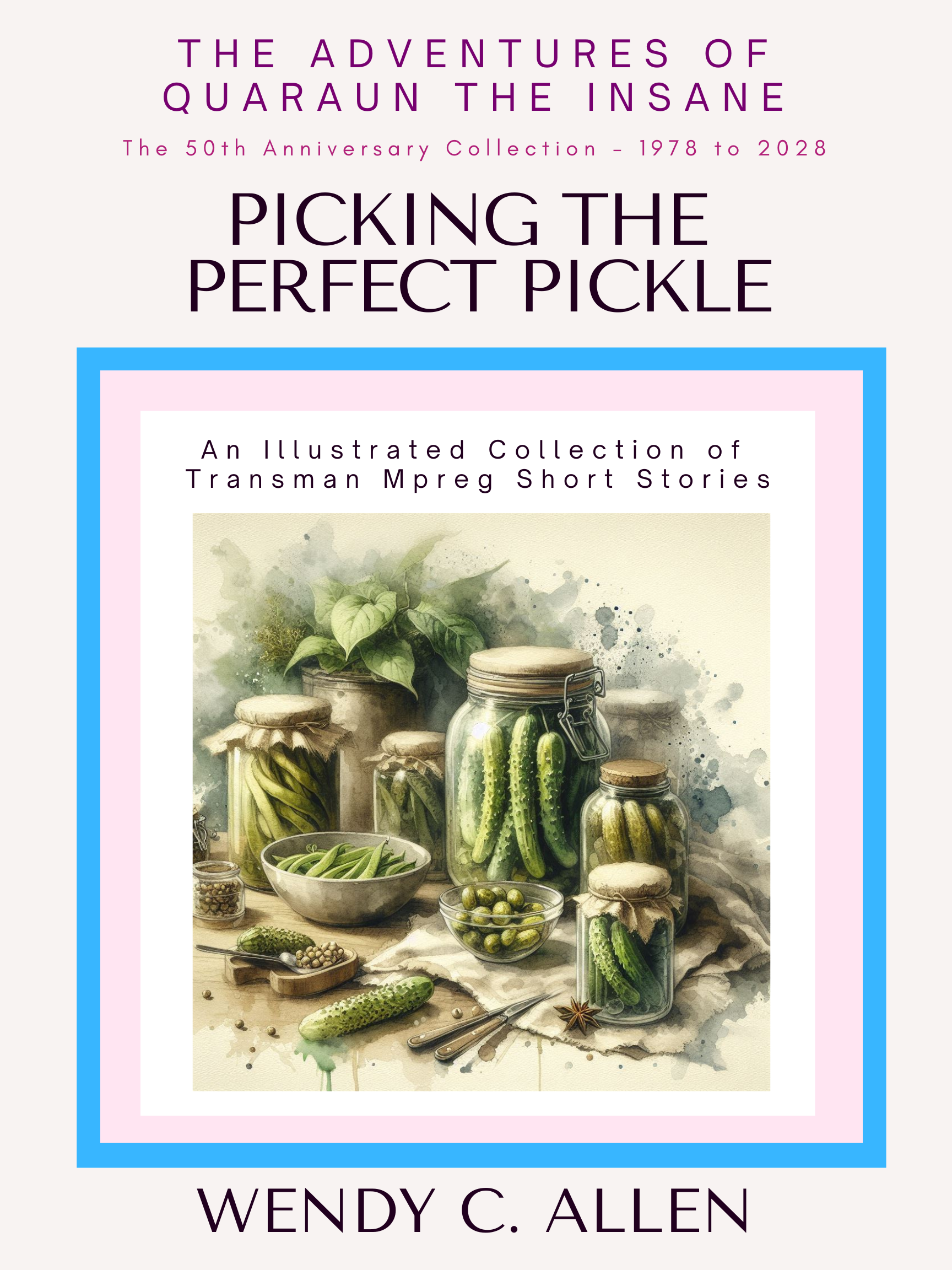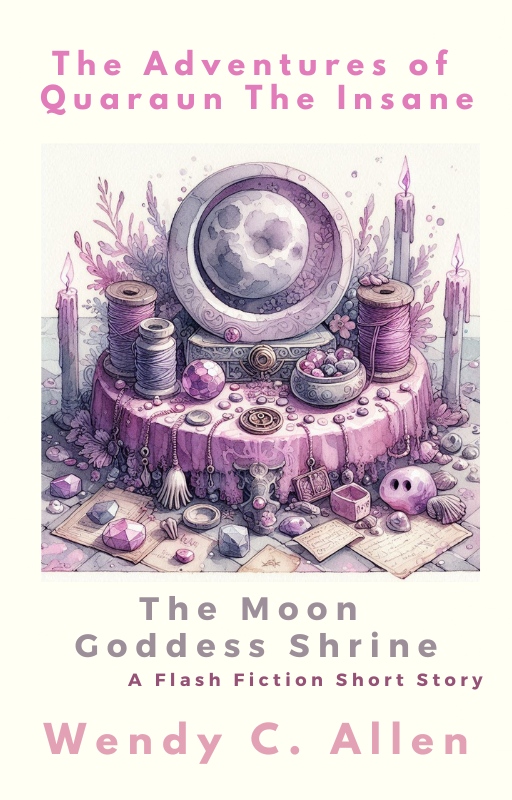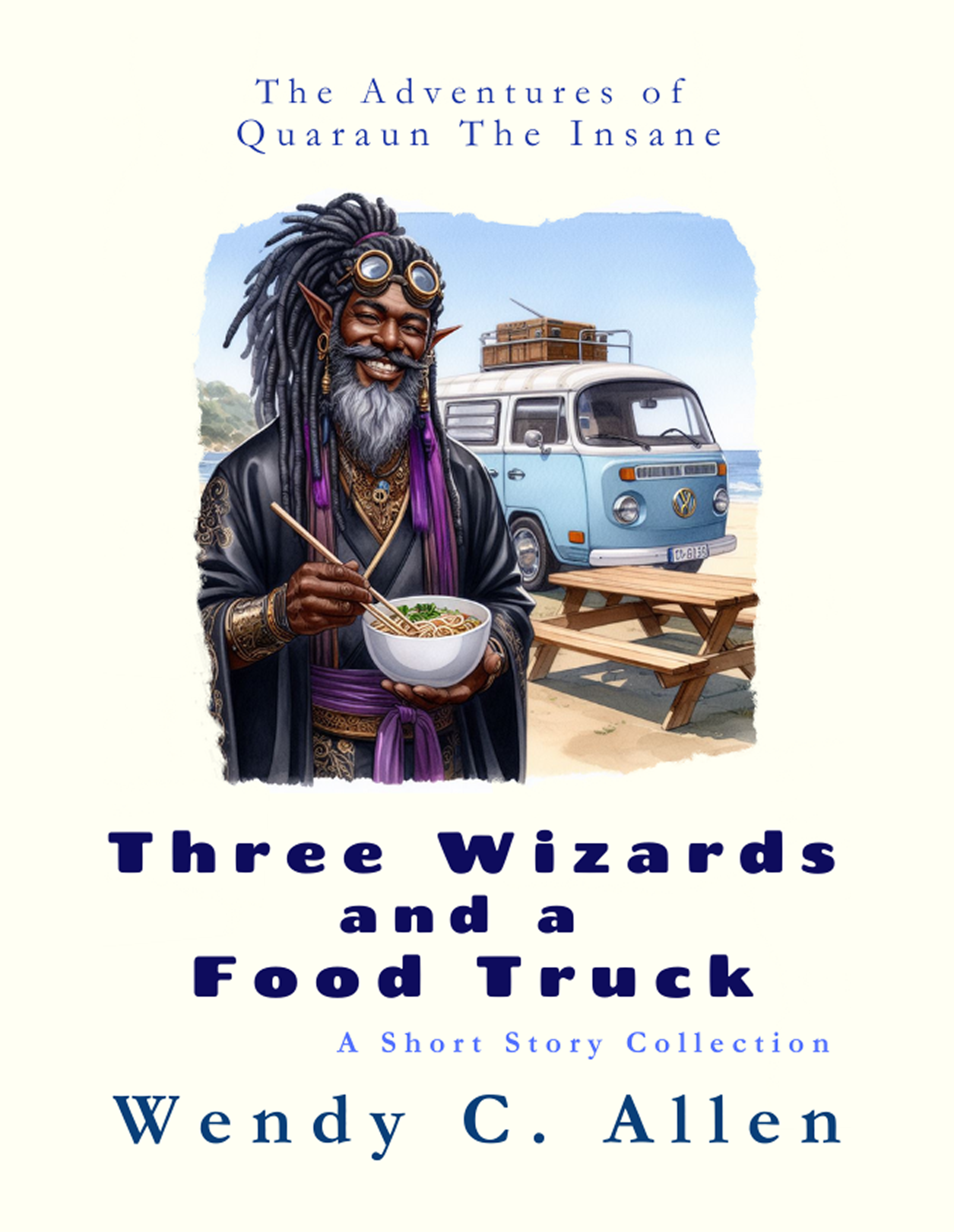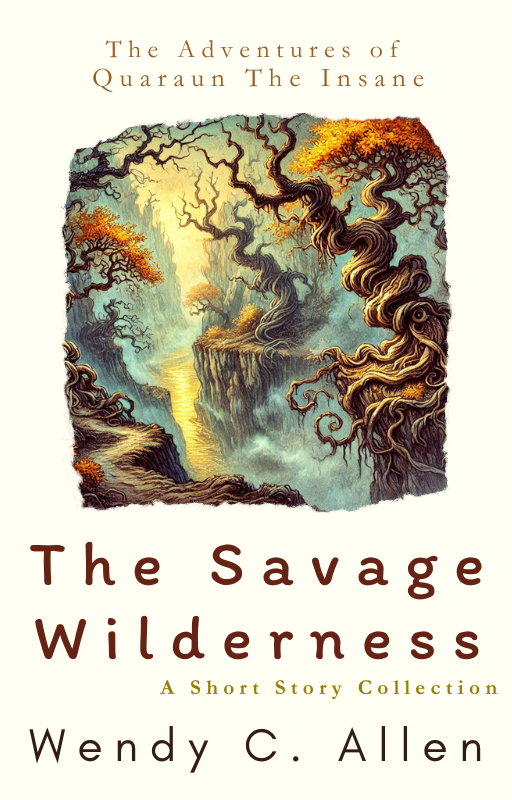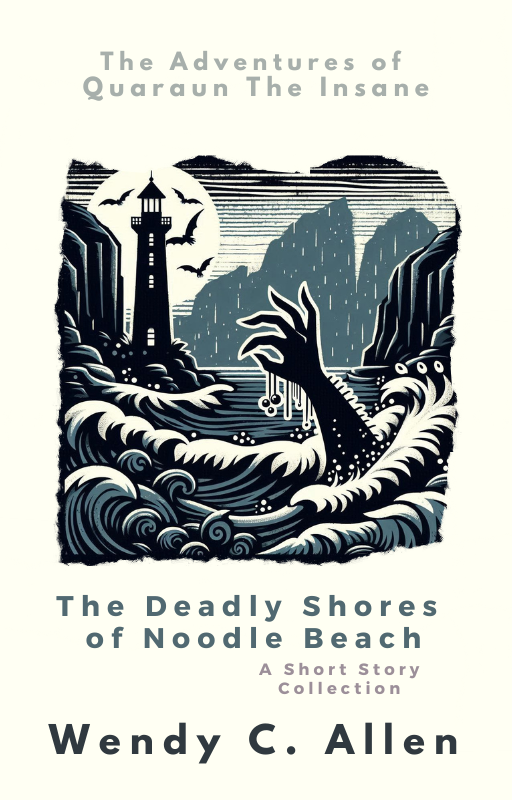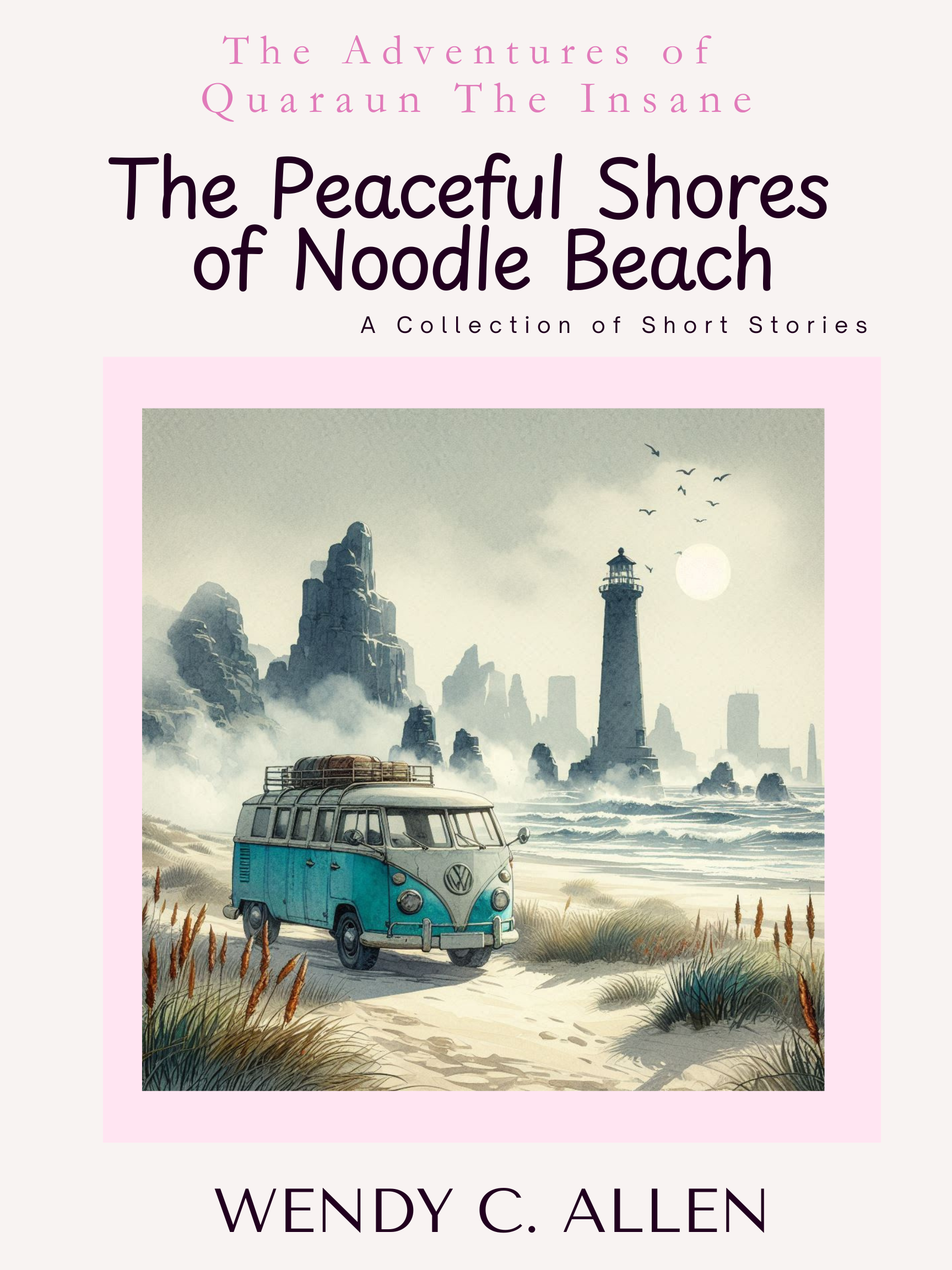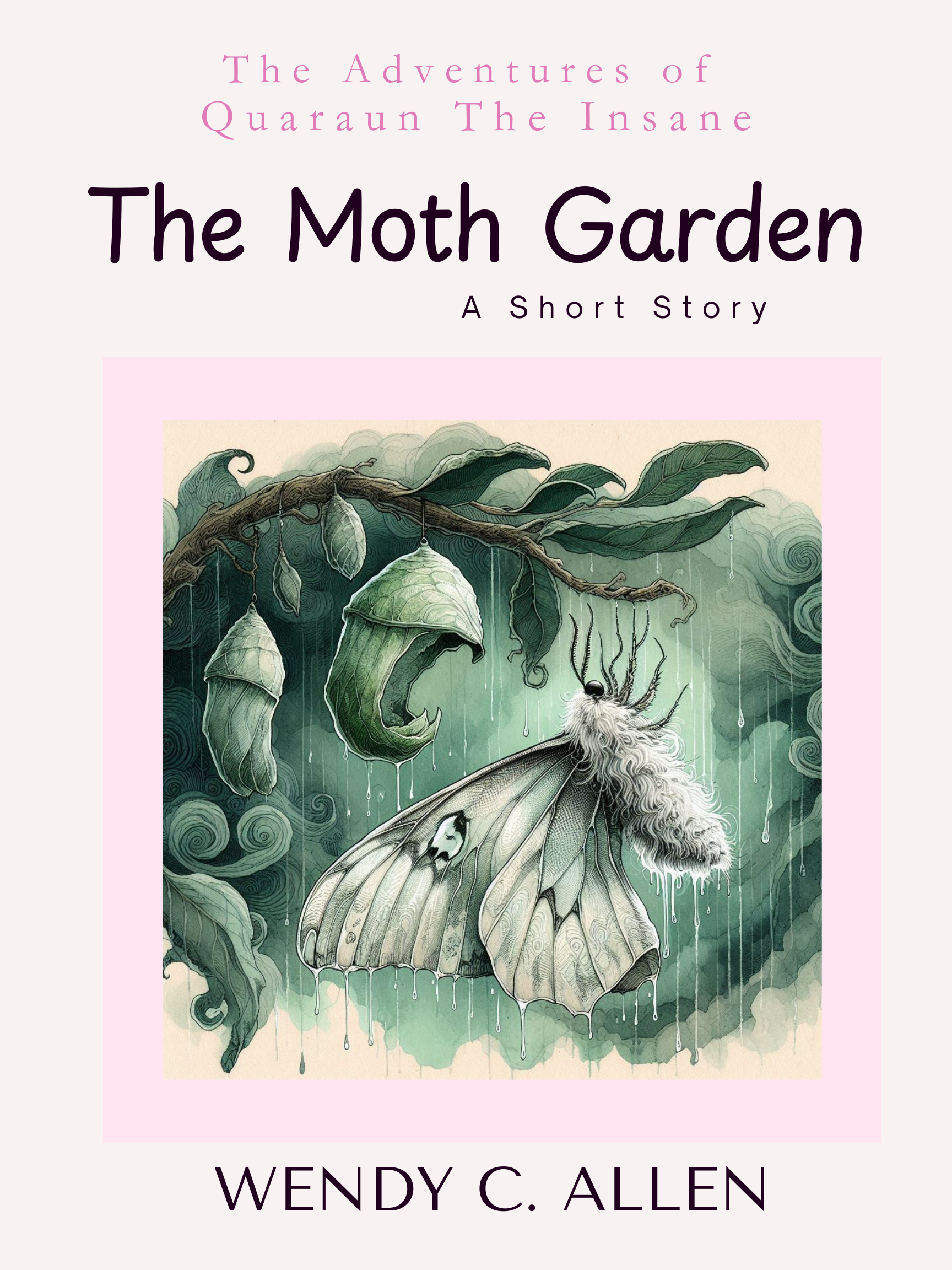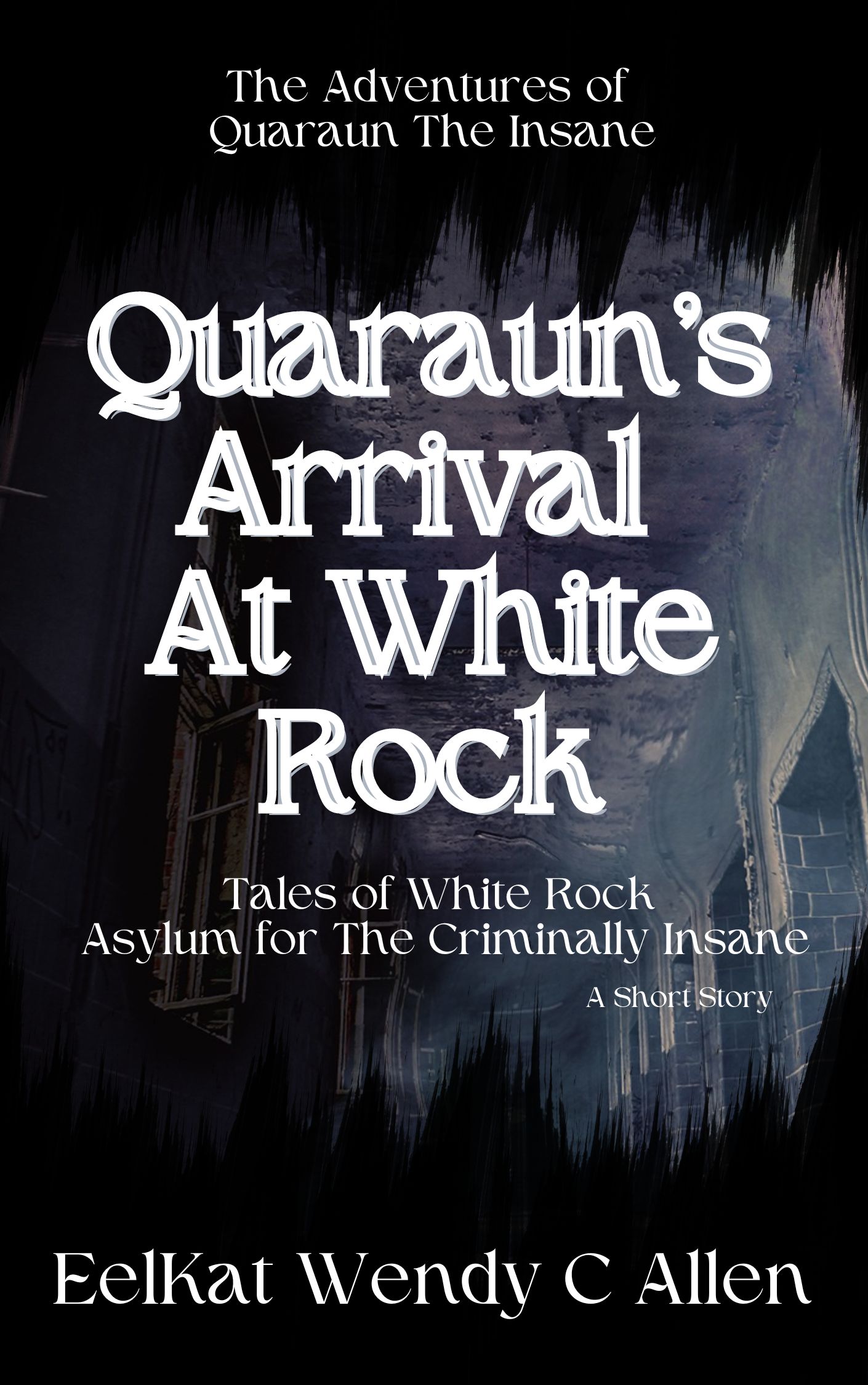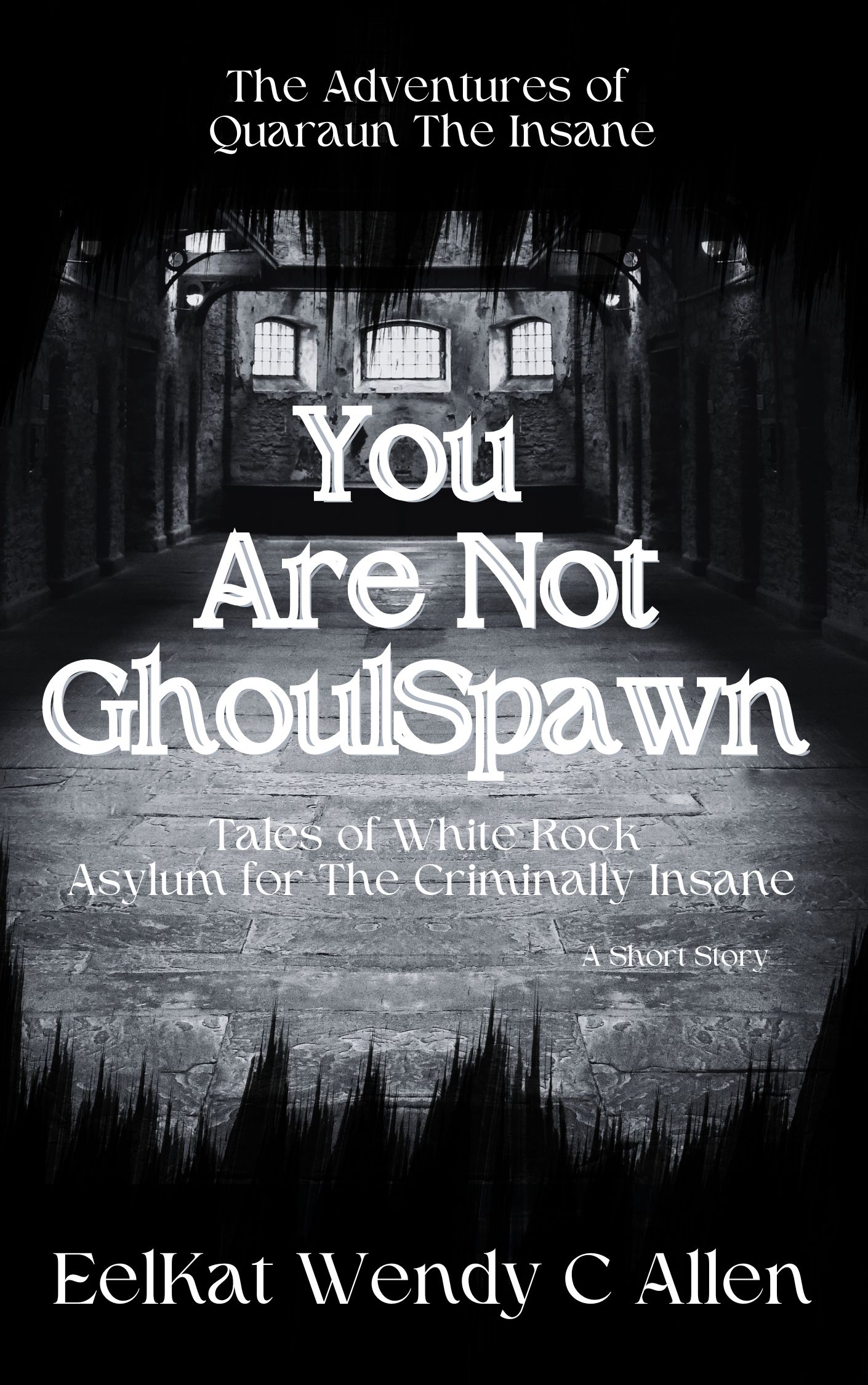Counting Down to the 2028 50th Anniversary of my first published book (September 23, 1978)
|
I am an author. I write Yaoi. This is my website. Yaoi means my main characters are gay lovers. If that bothers you, you're on the wrong website. Sorry.  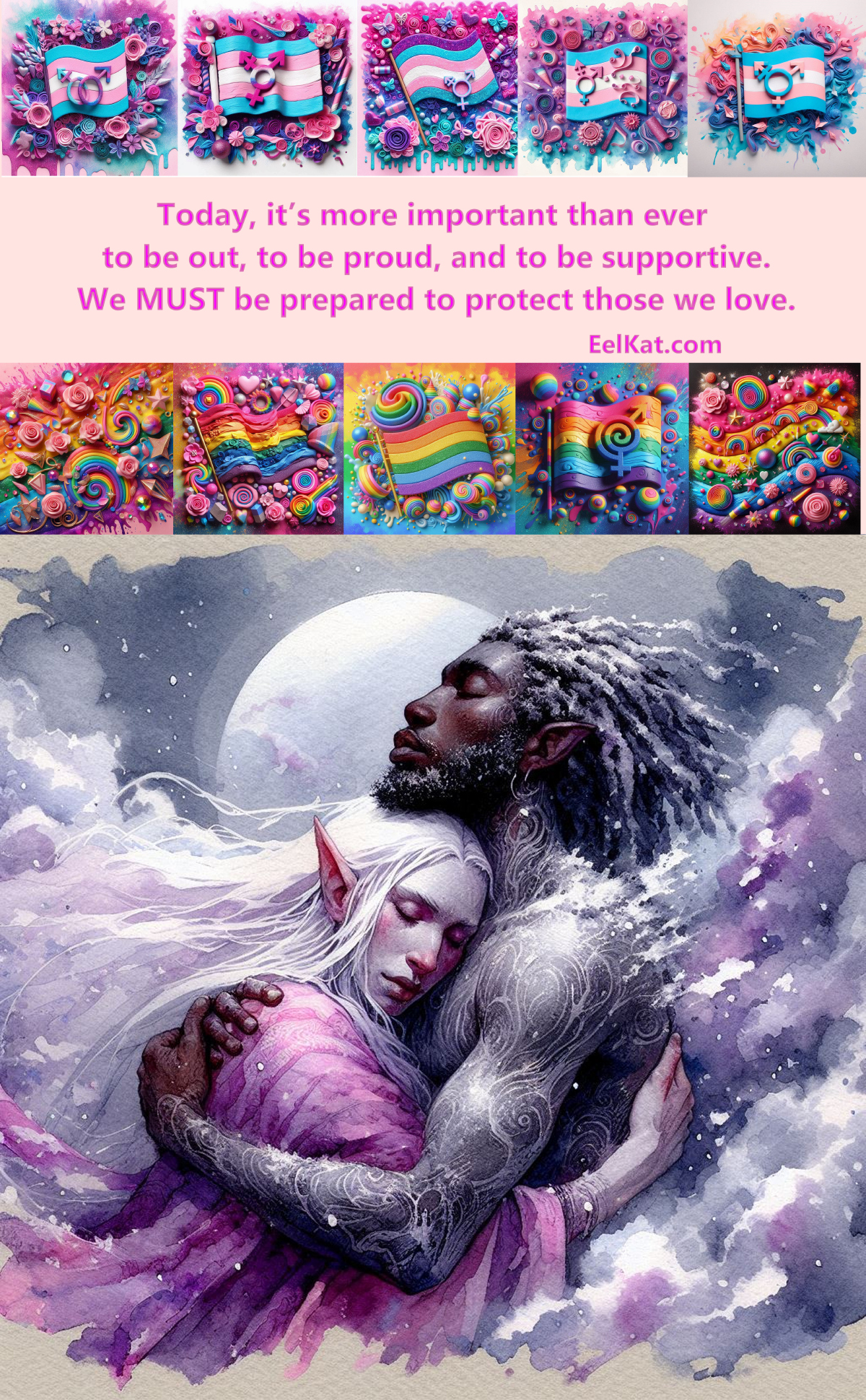 Transman Quaraun (The Pink Necromancer) and his husband King Gwallmaic (aka BoomFuzzy the Unicorn) King of The UnSeelie Court. Main characters of The Adventures of The Pink Necromancer series. Transman Quaraun (The Pink Necromancer) and his husband King Gwallmaic (aka BoomFuzzy the Unicorn) King of The UnSeelie Court. Main characters of The Adventures of The Pink Necromancer series.
|
This website is a safe zone for LGBTQAI+, pagans, polys, trans, neurodivergent, disabled, mobile aid user, minority, cosplayers, otherkin, furries, & BIOPIC communities.
If you are a hater, you can go fuck yourself.
Happy 2026!
It is our 30th anniversary here at Space Dock 13!
On the web since 1996!
You have encountered an extremely old website that continues to exist in old web ways, the same way it has done for now three decades.
In spite of being now 30 years old this year, started in 1996, it is still heavily active and old pages updated daily, new pages added daily, still now in 2026. All hand written, all hand coded (no AI), all by me, same as it ever was.
We Still Exist: The Old Web Did Not Go Away, You Just Forgot How To Find Us
|
This site was NOT designed for mobile devices (as they had not been invented yet when I created it) thus this site looks best on a computer, at 1280x768 or above. |
This is a very old website created in 1996, so, yes, javascript is needed for the site to work as it should. If things don't function, you may need to update javascript drivers on your device |
This site tries to be mobile friendly but it's been online since 1996, so old pages may not load right on mobile devices, and as this site has had pages added near daily for 30 years there are now over 20k pages here. |
Having started out in life as a GeoCities site, this site contains glitter, bright colours, blinkies, moving gifs, and other things the old web was known for. |
Buying Reviews
Home / About / Buying Reviews"At the writing conference I went to last week, they were giving out conference bags with lots of goodies inside. One of the goodies was John Locke's book, "How I Sold a Million Ebooks in 5 Months". I thought this was really awesome to get this book, so I began reading and taking notes. I'm almost done with the book now, and I was going to post a review of my thoughts of the book when I went on Amazon and saw a bunch of reviews about Locke being a fraud and paying for reviews and such. Basically saying that the real reason he sold a million ebooks was through this pay-for-review service, which has since been out of business since 2011 or so.
Is all this really true? Did he really pay for reviews to get his 5 million ebook sales? That is disheartening... So everything I read in his book has pretty much been a lie, and I've been wasting my time reading his book. I wish it wasn't true. Why do people feel they have to cheat their way to the top? I can't believe I haven't heard about this before. I think when it happened I was still new to the self-publishing game and didn't know anything like this existed. I Googled stories about it, but I would like honest opinion from you, since you are a veteran and have been here from the start, seeing practically everything that's been going on in the self-publishing world."
The issue here was not that he paid for reviews (because a lot of authors do this) but the fact that he paid ONE PERSON to create 5,000 Amazon accounts and write 5,000 reviews. 1 person wrote 5,000 individual reviews. THAT was the issue. Creating multiple accounts with the intent to sway the star ratings is against Amazon's ToS. He paid 1 person to write 5,000 reviews and THAT is what got him in trouble. Had he paid 5,000 people to write 5,000 reviews no one would have batted an eye, but that is not what he did - he paid 1 single solitary person to write all 5,000 5-star reviews.
The fact remains that MOST authors do pay for reviews. Many hire a publicists to do it for them while some do it themselves, but either way, it's common practice and it's been common practice since the 1950s, long before either the internet or Amazon were invented.
Think about it, how many times have you said to a friend "Hey I'll give you a copy of my book if you write a review!" Every author does this, it's just human nature. You said it to your mom, your dad, your brother, your sister, your grandmother, your neighbor, your co-worker, every body in your circle of friends. Whether or not they acted on it is not the point here, the point here is that you offered to buy your own book and pay them with a copy of it to write a review. That means by FTC Law that person is required to write in their review, as part of their review, a disclaimer saying they were paid to write said review. Receiving a free copy of the book is regarded by the FTC (Federal Trade Commission) as receiving payment for services rendered.
It is the FTC that was the real issue here. One person wrote 5,000 reviews, not one of those 5,000 reviews had a disclaimer saying they were paid to write said review, Amazon discovered that all of these 5,000 accounts each had only 1 review (all on Locke) and that each had the exact same ISP address. In the initial accusation, he was accused of writing all 5,000 reviews himself, Amazon was threaten to delete his account for ToS violation (you can't write a review for your own book, let alone write 5,000 reviews for your own book) which was WHY he came forward with the fact that, no I didn't write the reviews I paid this guy over here to write the reviews.
An investigation was started, and what happened was, Locke hired a review writing service. The service claimed they would buy 5,000 copies of his book and use them as reader review copies, sending them out to 5,000 readers who would write 5,000 reviews. This is a perfectly legitimate and legal business, provided that there are actually 5,000 individual humans reading those books and writing 5,000 separate honest reviews. In a legal operation those reviews will be all over the map, some good, some bad, some terrible, a few if any will actually be 5 stars. There are literally hundreds of companies that offer this service and nearly every traditional published author uses them (whether they know it or not - often their publisher does not tell them). For self publisher's the most commonly used service is LibraryThing's Early Review Program.
The problem with this particular company that Locke had used was the whole thing was being run by one guy who had created a computer program to randomly generate fake Amazon accounts. In other words - there were no readers at all.
He used this service multiple times - each time the service bought 5,000 books. In other words, yes he did sell a million copies of his book, but close to 100,000 of the very first copies sold were all bought BY ONE PERSON. Locke however was not seen as being at fault here because he honestly believed he was paying for 5,000 reviewers to read his books. Basically he was paying people to buy his book and he thought he was paying lots of people to buy his book, he didn't know there were no real readers behind the reviews or that only 1 person bought all the books. He had no idea the guy was scamming him.
Now I know everybody like to jump on the "let's blame John Locke" bandwagon, but it's important to consider here that Locke was the victim of a scam artist. What Locke was doing was perfectly legal and lots of authors do it. He just hired the wrong person to get the job done. He thought they were honest reviews. He paid for actual reviews from actual readers. He was NOT paying the guy to write 5,000 reviews on fake accounts; he did not know that was what was going on.
Keep in mind here that he had just won a huge amount of money on a game show and did not buy a few reviews - his bank records came out in the court case and he had bought (that they know of) 100,000 reviews, and they suspect he may have bought many, more than this. Each review resulted in 1 sale of the book. It wasn't the reviews that helped him sell a million copies, it was the 100,000 fake sales that happened within a few days of publishing the book, which resulted in him getting top sales rank on Amazon. People started buying his books, because all of a sudden he was #1 on just about every search result page on Amazon, as a result of the review service buying 100,000 copies of his book all at once. So, no, reviews did not result in sales, it was the fake sales that resulted in boosted page rank, that resulted in sales. Buying a review here and there, doesn't do much, but buying 100,000 reviews, yeah, it does make a difference.
Locke was NOT the only author involved here. More than 100 other authors were named in the lawsuit, because they had likewise used the service. The authors were seen as innocent victims here, because they had in good faith paid the service to distribute reader review copies, not aware of the fact that there were no readers at all, and the reviews were nothing but a computer program that was randomly generating fake Amazon accounts, to write computer generated reviews. The only reason Locke got dragged through the mud so publicly was because at the time this happened he had 3 books in the New York Times BestSeller's list and NYTs sued him for fraud, claiming that he had won their bestseller title by scamming them. When NYTs realized Locke had no idea the review service was a scam, they went after the review service and shut it down.
The point is, the practice of buying reviews is not what was in question, because it is simply an understood fact that most (traditional published) best sellers have agents, publishers, editors, and publicists out there marketing for them and part of that marketing involves paying readers (via free copies of books) to write reviews. What was in question was that ONE PERSON had written 5,000 reviews using 5,000 fake Amazon accounts.
And I will point out that if you received his book free at a conference, it was because he paid that conference to hand out his books. In other words he was one of their sponcers. Again, not an uncommon or unethical practice. And it worked didn't it? You read the book than went to Amazon to write a review. You did not buy the book, you were paid with a free copy to read it and review it, even if you were not aware you were being set up to do so.
Were you asking my opinion of Locke as a writer? I have read the book you are questioning and I did not like it. It read like a get-rich-quick scheme, and seemed to full of self promotion and hype to be taken seriously. It's not a book I would recommend for someone just starting out. Sure it has it's good points and some very good info, but for someone like me, it wasn't telling me anything I didn't already know, and for newbies I think it would be giving them false hope, because it oversells and is not entirely honest with the fact that his success was a fluke that most writers will not be able to repeat. It would be best for people not still newbs but not yet experts either, folks who know how to read between the lines and get at the meat behind the hype.
As for his fiction. Eh. It's okay. I read a couple of his books way, way back maybe 3 or 4 years ago. I can't remember which ones they were now. The writing is okay, but the genre just wasn't my thing. It seemed to be written for men, I really don't think women were his target audience. It felt like something you'd expect to see in Playboy, fast read, naughty but not really "bad", again this guy is good at writing hype, and keeping readers hooked, but the whole spaghetti western modern cowboy solves a mystery theme he's got going on, just isn't my thing. I don't like contemporary settings, and cowboys of any type just don't do nothing for me. I mean, if you like that sort of topic/theme/genre than yeah, he's great at what he does and you'd probably love it, but me, I'm more into the Freddy Kruger/Saw/JigSaw splatter punk slasher fest horror type of story, so Locke's stories jut were not a right fit for me because they were not a genre I read.
Where asking for my thoughts on buying reviews? Eh, I don't have any problems with it. It's just part of the business. Have I done it? Not on any large scale like Locke did, no. I've given out free copies of books, yeah, but than again I don't have a single book listed for sale on Amazon either, so shot, I don't get reviews for those free copies I give out! LOL!
Most of my books are chapbooks, really short with no ISBNs on them and Amazon won't list a book unless it has an ISBN. I working on putting ISBNs on my books so I can list them on Amazon, but it's not a really big top priority for me, so I'm not in any hurry to get it done any time real soon. Basically you can only buy my books off LuLu at the moment and they aren't easy to find seeing how I do nothing to promote them either.
I can see you are quite upset by the fact of buying reviews. I don't see the issue with it, really. Of course I've been in the publishing industry since 1978, so eh, I'm just used to seeing that sort of thing going on. It happens, it doesn't really effect me, so I don't care. It's not my business to care about how other authors market their books. Sure I get curious and want to know what they did to see if I want to do it too, but for the most part I'm too lazy to attempt to do any marketing anyways. It's not my thing.
The End?
No, you have NOT reached the end of this article! What you have reached is the end of what it currently online. The rest is coming, hopefully it'll be on here in a day or three so keep checking back. I will remove this message at the same time I put the rest of it online.
As my long time readers will already
know a server crash took down most of the old free-hosted site on June
4, 2013 (which was online since 1997 and had reached 6,000+ pages).
Thankfully everything was saved on a separate hard-drive and the site is
being rebuilt with a new host and for the first time on it's own
domain. YAY!
I am currently moving all 6,000 questions&answer articles to this site one page at a time, at a rate of about 4 to 7 new pages being added each day, so be patient. Not all links are yet clickable. This process started on September 2, 2013 and will be ongoing at least through to January 2014. (And it may be well into 2017 before all 6,000 pages will be back online if I continue at this rate of 5 a day.)
Your Questions Answered
Who can I contact if my questions are not answered here?
This page was written by Wendy Christine Allen of 146 Portland Ave, Old Orchard Beach, Maine.
All Rights Reserved.
While there are around 20k pages on this website, most of them are blocked from search engines, with only around 800 of them available for appearing in Google/Bing/etc search results. The remainder can only be accessed via the various links found throughout this site. This was done deliberately on my part, and I did it because the bulk of the pages on this website are chapters from 138 novels and 423 novellas, so only the first page of each novel and novella indexed by search engines, and the remainder are linked in order, one page at a time, via clicking "next page" at the end of each. So if you are looking for a specific page from a specific novel, Google can't help you.
|
Thank you for stopping by and have a nice day! ꧁✨🌸🔮🦄🔮🌸✨꧂ And if it’s your birthday today: ִֶָ𓂃 ࣪˖ ִֶָ🐇་༘࿐꧁ᴴᵃᵖᵖʸ☆ᵇⁱʳᵗʰᵈᵃʸ꧂🤍🎀🧸🌷🍭 |
 |
Get an email whenever Wendy Christine Allen 🌸💖🦄 aka EelKat 🧿💛🔮👻 publishes on Medium.
I also write on these locations: | Amazon | Blogger | GumRoad | Medium | Notd | OnlyFans | Tumblr | Vocal |
Important:
Fraudulent sites are impersonating Wendy Christine Allen.
- The ONLY official website for Wendy Christine Allen is www.eelkat.com
Fraudulent social media accounts, particularly on Reddit and FaceBook are impersonating Wendy Christine Allen.
- The ONLY official social media accounts for Wendy Christine Allen are listed in the footer here at www.eelkat.com
Find Me on Social Media:
- Amazon: Author Central
- Amazon: Quaraun Series Index
- Blogger
- CafePress
- DeviantArt
- FaceBook (Profile)
- FictionPress
- Gravatar
- GumRoad
- Lemon8
- Medium
- Notd
- OnlyFans
- PayPal
- Reddit 1 (Primary)
- Reddit 2 (Alt; Archived)
- SpoonFlower
- TikTok
- Tumblr
- Twitch
- Twitter (X)
- Vocal
- WordPress
- YouTube
- YouTube Shorts
- Zazzle: My Art
- Zazzle: Quaraun Merch
Any websites and accounts you find online that are NOT on this list are NOT Wendy Christine Allen

